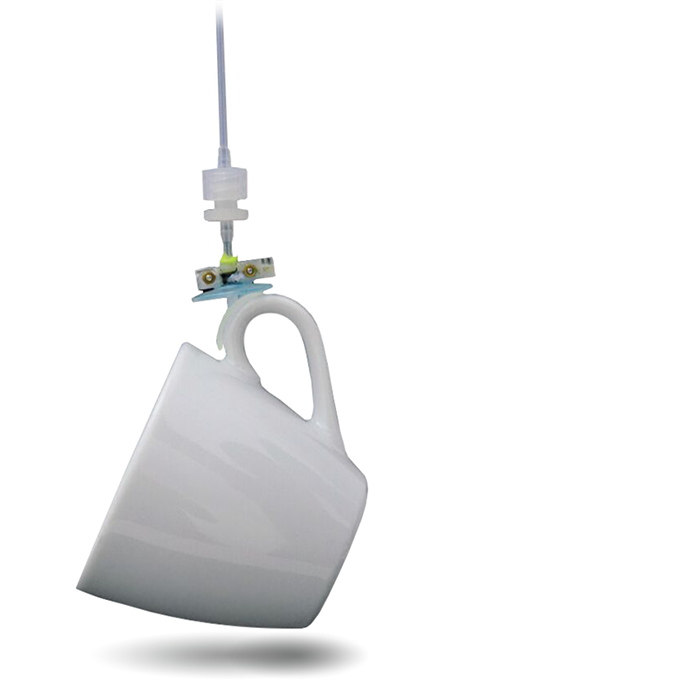A sticky grip: soft, strong, and inspired by geckos
Researchers at Carnegie Mellon University and Max Planck Institute for Intelligent Systems have developed a soft gripping system that uses differential air pressure and a gecko-inspired adhesive for exceptional bonding to three-dimensional objects.
Researchers at Carnegie Mellon University and Max Planck Institute for Intelligent Systems have developed a soft gripping system that uses differential air pressure and a gecko-inspired adhesive for exceptional bonding to three-dimensional objects. The findings were published in Proceedings of the National Academy of Sciences this week.

Source: Sukho Song
A coffee cup weighing 118 grams is lifted by the soft gripping system.
A soft gripping system capable of strong and reversible adhesion to non-flat surfaces is particularly critical for applications in transfer printing, robotics, and precision manufacturing. In these areas, adhesion-controlled grasping of complex three-dimensional surfaces is very challenging because the adhesive must be soft enough to enable intimate contact under light pressure but stiff enough to support high load and fracture strength.
“Until now, there has been a fundamental trade-off between soft, mechanically compliant interfaces and high adhesion strength,” said Metin Sitti, a director in Max Planck Institute for Intelligent Systems. “With this soft gripping system, we’ve demonstrated that you can have both.”
Sitti, also an adjunct professor of mechanical engineering at Carnegie Mellon University, has long focused his research on the unique features of the gecko lizard.
One day, we might have robots that act as assistants and care-givers. The ability for the robot to manipulate a broad range of objects is crucial.
Carmel Majidi, Associate Professor, Mechanical Engineering, Carnegie Mellon University
The gripping system contains a soft adhesive membrane with microscopic pillars that are inspired by the sticky hairs on a gecko’s foot. The membrane is supported by a deformable gripper body that controls the gripping strength of the adhesive through changes in internal air pressure. It exhibits enhanced and robust adhesion on various sizes of curved and deformable surfaces, outperforming other adhesion methods.
Another area of application for this soft gripping system is in personal robotics.
“One day, we might have robots that act as assistants and care-givers—for example, a robot that can help unload a dishwater or manage medication. The ability for the robot to manipulate a broad range of objects is crucial, ” said Carmel Majidi, an associate professor of mechanical engineering at Carnegie Mellon.
Majidi and Sitti acknowledge Sukho Song and Dirk-Michael Drotlef in performing this multidisciplinary research and the Max Planck Society for the financial support. Majidi also acknowledges support from the Office of Naval Research.
